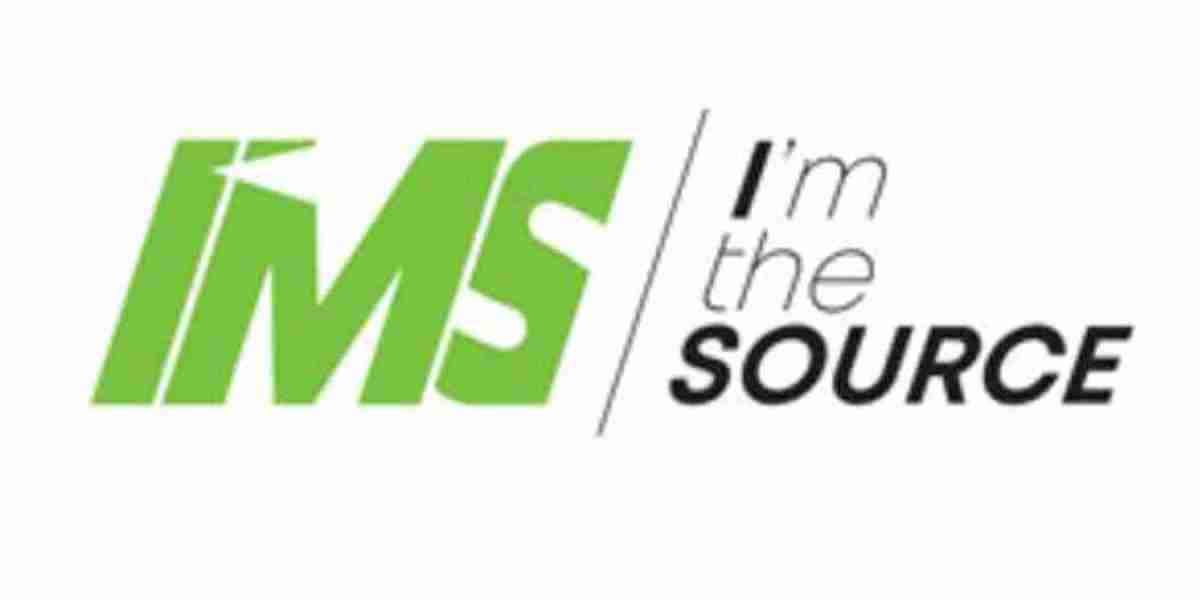Healthcare administration is a field of growing importance, particularly in an era where healthcare systems are constantly evolving to meet the demands of a growing and aging population, technological advances, and increasing regulatory requirements. IMS Business School in Kerala recognizes the significant role of hospital administrators in shaping the future of healthcare and has designed specialized hospital administration courses to equip students with the knowledge, skills, and practical experience required to excel in the dynamic healthcare industry.
The Hospital administration courses in Kerala at IMS Business School are structured to provide students with a comprehensive understanding of the key aspects of healthcare management, ensuring they are well-prepared for leadership roles within the healthcare sector. These programs not only focus on theoretical learning but also offer extensive practical exposure, ensuring that graduates are ready to meet the demands of the healthcare industry.
The Significance of Hospital Administration Courses
Hospital administration is crucial for the effective functioning of healthcare institutions. Hospital administrators are responsible for overseeing various aspects of healthcare facilities, including management, finance, human resources, technology, patient care, and compliance with regulations. As the healthcare industry expands, the demand for skilled hospital administrators grows, as these professionals play a pivotal role in improving the quality of care, streamlining operations, and ensuring the financial health of the institution.
The hospital administration courses at IMS Business School are designed to provide students with an in-depth understanding of the healthcare system, especially in India. The curriculum is aligned with global best practices while emphasizing the unique challenges and opportunities in the Indian healthcare landscape.
Curriculum Overview
The curriculum at IMS Business School is carefully crafted to provide a well-rounded education in healthcare management. The courses cover a wide range of topics, ensuring that students are equipped with the knowledge and skills necessary to address the diverse challenges faced by healthcare organizations.
Healthcare Policies and Regulations:
Hospital administrators must have a solid understanding of healthcare policies, regulations, and standards set by governing bodies. The courses at IMS Business School provide students with a comprehensive understanding of national and international healthcare policies, legal frameworks, and the ethical principles governing healthcare practice. Students learn about patient rights, confidentiality, and compliance with healthcare laws and regulations, which are essential for maintaining the integrity of healthcare facilities.Hospital Operations Management:
One of the core components of hospital administration is the effective management of hospital operations. Students are taught how to optimize resources, streamline processes, and ensure the smooth running of hospital services. This includes managing daily hospital activities such as patient admissions, bed management, patient flow, and facility maintenance. Hospital administrators must also deal with logistical challenges, including managing supply chains, medical equipment, and staff.Financial Management:
Financial management is a crucial skill for any hospital administrator. Students at IMS Business School are taught the fundamentals of budgeting, financial planning, financial analysis, and cost control in healthcare settings. Hospital administrators need to make sound financial decisions to ensure that the hospital remains financially stable while maintaining the quality of care. These courses teach students how to balance cost-efficiency with high-quality patient care.Healthcare Information Systems:
In today’s digital world, healthcare information systems are an integral part of hospital management. Students are trained in the use of electronic health records (EHRs), hospital management software, and health information systems (HIS). Administrators must be proficient in these technologies to improve patient care, ensure data security, and optimize operational efficiency.Quality Assurance and Improvement:
Quality assurance is at the heart of hospital administration. Students learn about quality management techniques such as Six Sigma, Lean management, and continuous improvement processes. Administrators play a key role in setting quality standards, monitoring performance, and implementing improvements to ensure that healthcare services meet the highest standards. The courses at IMS Business School focus on developing a culture of quality in healthcare settings.Human Resource Management:
Effective human resource management is critical to the success of healthcare institutions. Hospital administrators are responsible for recruiting, training, and managing healthcare professionals. The courses at IMS Business School provide students with the skills needed to develop HR strategies, foster teamwork, and create a supportive work environment that attracts and retains top talent in healthcare. Motivated staff members are essential for delivering high-quality patient care.Leadership and Strategic Planning:
Leadership is a key element of hospital administration. Hospital administrators must be strong leaders capable of guiding teams, making strategic decisions, and navigating the complexities of healthcare management. IMS Business School’s courses focus on leadership development, decision-making, problem-solving, and strategic planning. Students learn how to lead hospital teams, manage organizational change, and ensure that their healthcare facility remains at the forefront of healthcare delivery.Crisis Management and Emergency Preparedness:
Hospitals must be prepared for crises such as natural disasters, pandemics, and mass casualty events. The courses include training in crisis management and emergency preparedness. Students learn how to develop emergency response plans, coordinate with other agencies, and manage resources during crises. Effective crisis management ensures that healthcare facilities can continue to operate during emergencies and provide critical care to patients in need.Patient Care and Satisfaction:
A major focus of hospital administration is to improve patient care and satisfaction. The courses at IMS Business School teach students how to implement patient-centered care models, improve communication within healthcare teams, and optimize patient flow. Administrators learn how to ensure that patients receive high-quality care in a timely and compassionate manner, which is crucial for patient satisfaction.Technology and Innovation:
Technological advancements are transforming healthcare delivery. Hospital administrators need to be aware of the latest developments in medical technology, healthcare IT, and telemedicine. The courses at IMS Business School cover emerging technologies that are shaping the future of healthcare and provide students with the skills to evaluate and implement new technologies effectively within healthcare settings.
Practical Learning Opportunities
IMS Business School emphasizes the importance of hands-on learning. To ensure that students are well-prepared to apply their knowledge in real-world healthcare environments, the school offers practical training and internship opportunities with leading hospitals and healthcare organizations in Kochi and across Kerala. These internships provide valuable exposure to the day-to-day operations of healthcare facilities and allow students to put their theoretical knowledge into practice.
During their internships, students gain experience in managing hospital operations, dealing with patient complaints, overseeing financial transactions, and ensuring compliance with healthcare laws and regulations. This hands-on experience is invaluable as it allows students to gain practical skills and build professional networks that will benefit them throughout their careers.
Industry Exposure and Networking
IMS Business School also organizes guest lectures, seminars, and industry events where students can interact with healthcare professionals and experts. These events provide students with the opportunity to network with industry leaders, gain insights into the latest trends and developments in healthcare, and learn from the experiences of successful hospital administrators.
Guest lectures are conducted by renowned healthcare professionals, administrators, and consultants who bring valuable industry perspectives to the classroom. These events allow students to gain practical insights into the challenges and opportunities faced by healthcare leaders and to learn from real-world experiences.
Career Opportunities and Advancement
Graduates of IMS Business School’s hospital administration courses are well-equipped to pursue careers in various roles within the healthcare sector. With the growing demand for skilled healthcare administrators, there are abundant job opportunities available in hospitals, healthcare organizations, public health agencies, and healthcare consulting firms.
Graduates can pursue positions such as hospital administrators, healthcare managers, department heads, financial managers, and healthcare consultants. They can also work in areas such as healthcare policy, quality management, patient safety, and health IT. The growing healthcare industry offers a wide range of career paths, and hospital administration graduates are well-positioned to take advantage of these opportunities.
Additionally, hospital administration courses open up opportunities for career advancement and higher earning potential. Graduates who successfully complete these courses are equipped with the skills and credentials needed to take on leadership roles within healthcare organizations. As healthcare systems continue to evolve, experienced hospital administrators will be in high demand to navigate the complexities of the healthcare industry.
Conclusion
Hospital administration is a vital field that plays a crucial role in ensuring the efficient operation of healthcare facilities. The hospital administration courses at IMS Business School in Kerala provide students with a comprehensive education that prepares them for the challenges of managing healthcare institutions. With a curriculum that covers everything from healthcare policies to financial management, quality assurance, and leadership, these courses ensure that graduates are well-equipped to succeed in the healthcare sector.
The combination of theoretical knowledge, practical training, and industry exposure ensures that IMS Business School graduates are prepared to make a positive impact on healthcare systems. With a growing demand for skilled hospital administrators, these courses offer valuable career opportunities and provide students with the skills needed to lead healthcare organizations and improve patient care. Whether you are aspiring to manage a hospital, lead healthcare teams, or drive strategic change in the healthcare industry, IMS Business School’s hospital administration courses provide the knowledge and experience you need to succeed in this rewarding and dynamic field.















